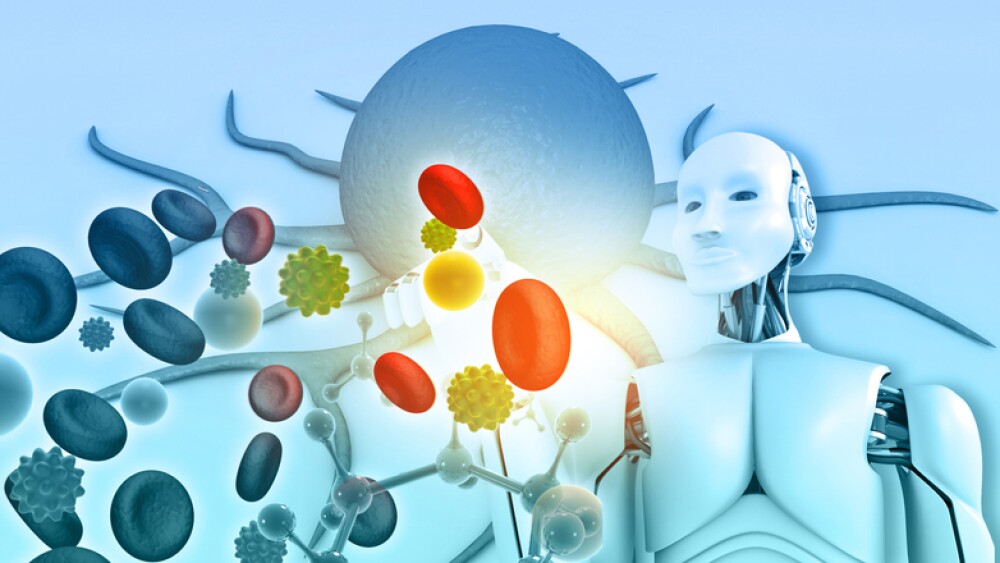ARCEDI Biotech ApS today announced the publication of data suggesting the Company’s cell-based noninvasive prenatal testing (cbNIPT) technology provides a viable alternative to existing non-invasive as well as commonly used invasive prenatal testing options.
- Preliminary Results Identical to Invasive “Gold-Standard” Testing - |
| [17-October-2017] |
|
VEJLE, Denmark, Oct. 17, 2017 /PRNewswire/ -- ARCEDI Biotech ApS, a company developing technologies for rare fetal cell detection for use in prenatal diagnostic applications, today announced the publication of data suggesting the Company's cell-based noninvasive prenatal testing (cbNIPT) technology provides a viable alternative to existing non-invasive as well as commonly used invasive prenatal testing options including Chorionic Villus Sampling (CVS) and amniocentesis for the detection of aneuploidy and subchromosomal aberrations and abnormalities. The article, titled, "On the Road to Replacing Invasive Testing with Cell-Based NIPT: Five Clinical Cases with Aneuploidies, Microduplication, Unbalanced Structural Rearrangement or Mosaicism," was published online in the journal Prenatal Diagnosis. The five cases presented in the article were part of a larger validation study and represent a selection of clinically significant chromosome abnormalities. The goal of the validation study was to establish a cbNIPT method and evaluate its accuracy through comparison of clinical results obtained from chromosomal microarray (CMA) on CVS with the CMA on fetal cells enriched from maternal blood. "The results from our study demonstrate that cell-based noninvasive prenatal testing, or cbNIPT, has the potential to go beyond common aneuploidies and identify smaller chromosomal rearrangements in the fetal genome," said Ripudaman Singh, PhD, MBA, ARCEDI Biotech's Chief Technology Officer. "ARCEDI is committed to the development of technology to enrich fetal cells from maternal blood samples in order to use the fetal genome and ultimately detect chromosomal variations currently only seen through risky invasive procedures. Based on the results, we believe cbNIPT holds great potential to offer expectant families an accurate and important prenatal diagnosis." Pregnant women who were determined to have high-risk pregnancies (defined as greater than 1:300) and had already opted to receive invasive prenatal testing were asked to participate in the validation study. In the study, 30 mL of blood was drawn from participants during gestational ages of 10-13 weeks. Fetal trophoblast cells were enriched using proprietary antibodies on a magnetic activated cell sorting (MACS) system and subsequently stained with a cocktail of fluorescent antibodies. Fetal cell DNA was whole genome amplified and subsequently analyzed by CMA. ARCEDI has previously reported the steps taken to establish fetal gene expression profiles and generate knowledge of the type of fetal cells circulating in maternal blood as well as the biomarkers they express. Initially, fetal cells were isolated using either a no-enrichment method or through the depletion of maternal leucocytes using a MACS platform. Once assessed, these cells showed an over-expression of endothelial and placental genes in fetal cells compared to the maternal cells. A second, more targeted gene expression array analysis of 198 circulating fetal cells was then completed which revealed that more than half of the overexpressed genes in the fetal cells were specific in extravillous trophoblasts. This provided ARCEDI with the cell type to target for cbNIPT. Through the use of ARCEDI's technology, fetal cells have been isolated from every maternal sample, resulting in the recovery of an average of 12.8 fetal cells from each 30 mL sample of maternal blood. Aneuploidies, microduplication, and translocation were detected using DNA from extravillous trophoblasts isolated from the collected maternal blood with the results from the cbNIPT confirmed in each of the five pregnancies via the invasive CVS test. "Through the continued development of our technology, results such as these help to validate our cutting-edge approach to provide a safe, effective and accurate alternative to existing non-invasive as well as invasive prenatal testing," said Palle Schelde, ARCEDI Biotech's Chief Executive Officer. "We anticipate providing our test on a broader scale in Demark in the near future as the next step in the process of changing how prenatal testing is conducted." About ARCEDI Biotech ARCEDI Biotech, a Danish biotech company, has developed technology to isolate fetal cells from maternal blood samples with the potential to provide detailed genetic information about the fetus. The company's internal testing to date has identified fetal cells in every sample, a significant advancement over currently available technology. ARCEDI is currently performing a clinical validation study on 'high risk' pregnancies which will enable a comparison of results from cell based analysis with the results from cell free NIPT and CVS. ARCEDI is also researching the potential utility of its rare cell isolation technology in the early detection of trophoblastic diseases. For more information, please visit www.arcedi.com. Contact: Cooper Zajac SOURCE ARCEDI Biotech ApS |




